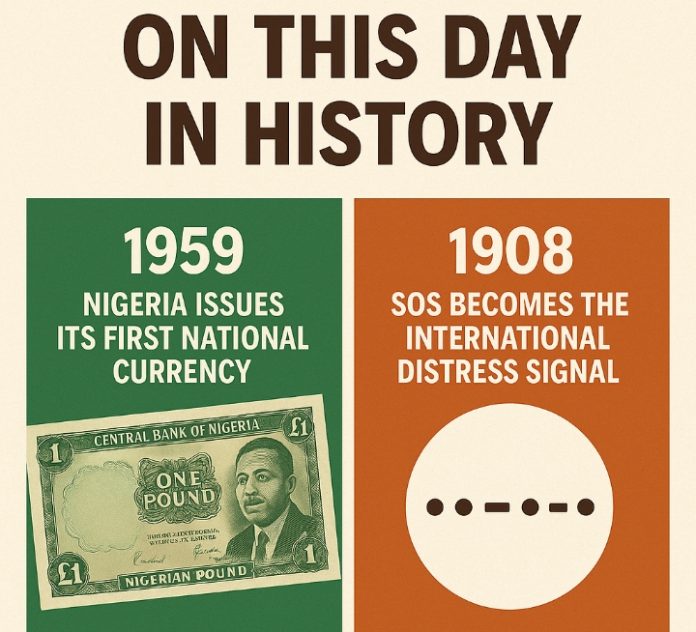On This Day in History – July 1st
Two Major Events That Shaped Global and Nigerian History
🏦 1959: Nigeria Issues Its First National Currency
On July 1st, 1959, a defining moment in Nigeria’s economic history unfolded — the Central Bank of Nigeria (CBN) issued the country’s first-ever national currency, the Nigerian Pound. This move marked a significant step toward Nigeria’s economic independence, coming just a year before the country gained full political independence from Britain in 1960.
The Nigerian Pound was introduced at parity with the British Pound Sterling, maintaining a 1:1 exchange rate. This currency consisted of notes and coins, and its issuance signaled the emergence of a structured financial system within the country. It also meant that Nigeria could finally manage its own monetary policies through a sovereign institution — the Central Bank of Nigeria, which had been established just a year earlier in 1958.
This currency would eventually evolve: in 1973, Nigeria transitioned from the Pound system to the Naira and Kobo — a decimal currency system that is still in use today.
🚨 1908: SOS Becomes the International Distress Signal
Also on this day, July 1, 1908, the world took a giant leap forward in maritime safety communication. The SOS distress signal (represented in Morse code as · · · – – – · · ·) was officially adopted as the universal international distress signal.
Though the SOS code was formally established during the 2nd International Radiotelegraphic Convention in 1906, it wasn’t until July 1, 1908, that it became mandatory and widely used by ships across the world.
Contrary to popular belief, “SOS” is not an abbreviation for any particular phrase like “Save Our Souls” — it was chosen for its simplicity and clarity in Morse code, making it easy to send and recognize even in urgent, high-stress situations.
This development saved countless lives over the years and laid the foundation for modern emergency communication standards.
🌍 Why These Events Matter Today
Both milestones — Nigeria’s economic stride in 1959 and the global safety measure of 1908 — show how powerful decisions and innovations made on a single day can ripple through history. They reflect progress: one toward national identity and control over economic affairs, and the other toward international cooperation and safety.
As we remember July 1st, let’s appreciate the building blocks of both our national history and the global systems that continue to shape our lives.


